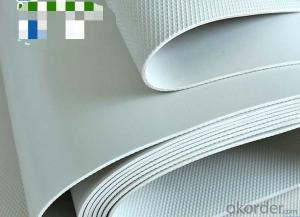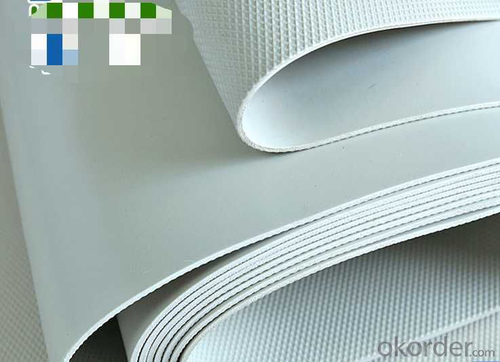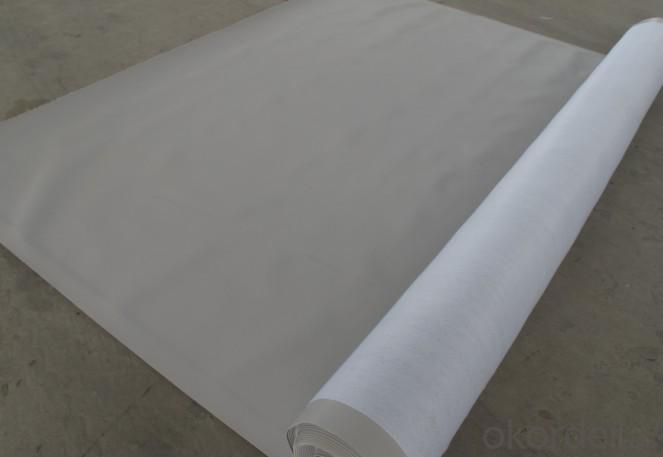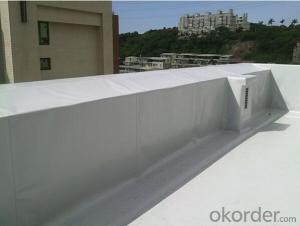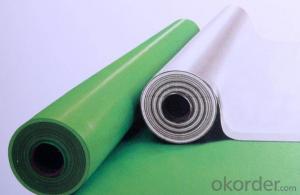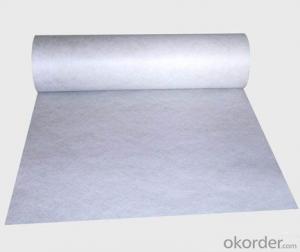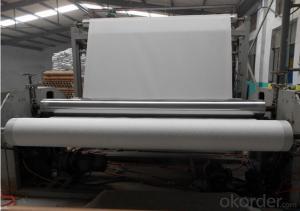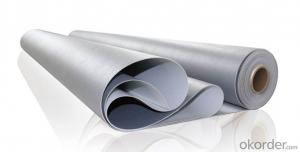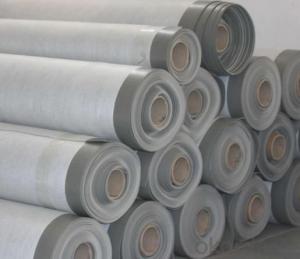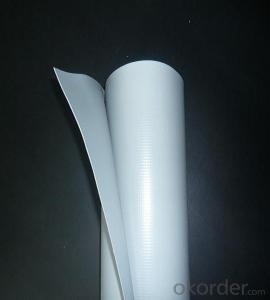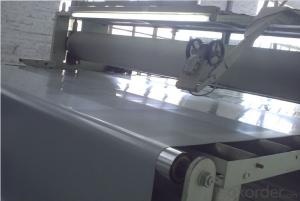PVC Root Puncture Resistant Waterproofing Membrane
- Loading Port:
- China main port
- Payment Terms:
- TT OR LC
- Min Order Qty:
- 5000 m²
- Supply Capability:
- 100000 m²/month
OKorder Service Pledge
OKorder Financial Service
You Might Also Like
1.The structure of PVC Waterproofing Membrane Description:
PVC waterproofing membrane is a kind of high quality, high polymer waterproof sheet.PVC resin is joined processing agent, such as plasticizer, anti-uv agent, anti-aging agent, stabilizing agent.The polymer waterproofing material is manufactured by extrusion method. This product adopt with unique formula, product life far beyond the general of waterproof material, long service life, the whole waterproof system roof for more than 20 years, underground for more than 50 years, has been widely used in architecture, civil engineering.
2.Main Feature of PVC Waterproofing Membrane:
•Long service life,good ageing resistance.
•High tensile strength,high elongation.
•Good flexibility at low temperature,good root resistance permeability.
•Strong resistance to chemical corrosion,strong plasticity.
•Conveniente for construction,low price.
3.PVC Watrerproofing Membrane Specification:
| Name | Width | Thickness | Length | |
| PVC waterproofing membrane | 2m | 1.2mm | 20m | |
| 1.5mm | ||||
| 2mm | ||||
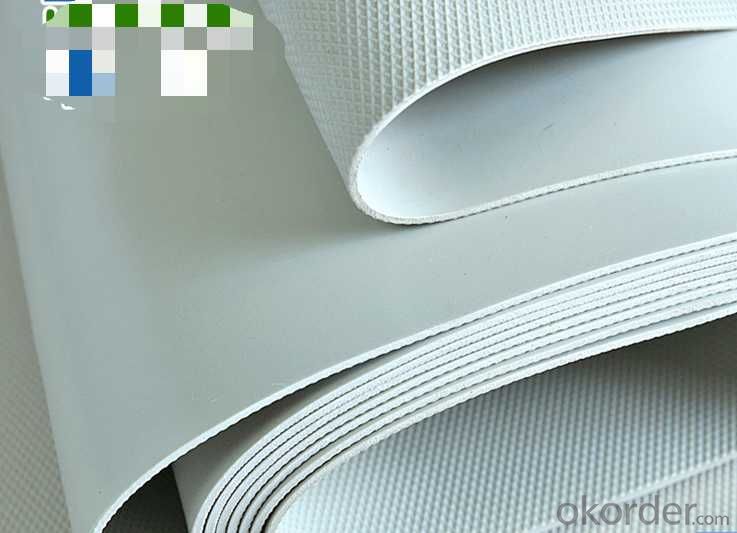
- Q: Can a waterproofing membrane be used for a green roof?
- Certainly, a green roof can utilize a waterproofing membrane. The presence of a waterproofing membrane is indispensable for every green roof system due to its ability to shield the underlying structure from water-related harm. It serves the purpose of barring water seepage, which could potentially result in both structural deterioration and the growth of mold. Furthermore, a waterproofing membrane aids in preserving the requisite moisture within the green roof system, thereby guaranteeing a steady water source for the plants. By incorporating a waterproofing membrane, one can successfully establish an eco-friendly and sustainable green roof, all while upholding the structural integrity of the building.
- Q: Can a waterproofing membrane be applied on top of existing waterproofing systems?
- Indeed, it is possible to apply a waterproofing membrane onto existing waterproofing systems. In certain instances, it may be necessary to incorporate an extra layer of safeguard or improve the current waterproofing system. By applying a fresh waterproofing membrane on top, an additional barrier against water infiltration can be established, consequently prolonging the longevity of the waterproofing system. It is crucial to adequately prepare the existing surface prior to the application of the new membrane to ensure optimal adhesion and efficacy. Furthermore, seeking guidance from a professional or referring to the manufacturer's guidelines can offer specific recommendations regarding the compatibility and application process of the new waterproofing membrane.
- Q: Can a waterproofing membrane be used in high-traffic areas, such as decks or balconies?
- Indeed, high-traffic areas such as decks or balconies can benefit from the utilization of a waterproofing membrane. These membranes are specifically engineered to act as a protective barrier against water and moisture, which makes them an optimal choice for areas that are frequently exposed to the elements. Due to their durability and ability to withstand foot traffic, they are well-suited for high-traffic regions. Decks and balconies, in particular, often employ these membranes in order to prevent water damage to the underlying structure and ensure the long-term structural integrity of the area. Moreover, certain waterproofing membranes are intentionally designed to be slip-resistant, thereby enhancing safety in high-traffic situations. In general, incorporating a waterproofing membrane into high-traffic areas serves as an effective method to safeguard and prolong the lifespan of these surfaces, while simultaneously preserving their functionality and aesthetics.
- Q: Can a waterproofing membrane protect against mold or mildew growth?
- Yes, a waterproofing membrane can help protect against mold or mildew growth. Mold and mildew thrive in damp and moist environments, and a waterproofing membrane creates a barrier that prevents water from seeping into the building structure. By keeping the area dry, it greatly reduces the chances of mold or mildew growth. Additionally, waterproofing membranes often have anti-microbial properties that inhibit the growth of mold and mildew even further. However, it's important to note that while a waterproofing membrane can provide significant protection against mold and mildew, it is not a foolproof solution. Proper ventilation and regular maintenance are also essential to prevent these issues.
- Q: Can a waterproofing membrane be used for a rooftop garden protection?
- Yes, a waterproofing membrane can be used for rooftop garden protection. Waterproofing membranes are designed to create a barrier against water penetration, preventing leaks and protecting the underlying structure. By installing a waterproofing membrane on the rooftop, it helps to protect the garden and prevent water damage to the building.
- Q: Does a waterproofing membrane provide any insulation benefits?
- No, a waterproofing membrane does not provide any insulation benefits. The primary purpose of a waterproofing membrane is to protect the underlying structure from water damage by preventing water from penetrating through the surface. It acts as a barrier to keep water out and maintain the integrity of the structure. Insulation, on the other hand, is designed to regulate temperature and prevent heat transfer. It helps to maintain a comfortable indoor environment by reducing the transfer of heat between the interior and exterior of a building. Insulation materials are typically installed within the walls, floors, or roofs to provide thermal resistance and improve energy efficiency. While both waterproofing and insulation contribute to the overall performance and durability of a building, they serve different purposes. Waterproofing focuses on keeping water out, while insulation focuses on regulating temperature. Therefore, it is important to use both waterproofing and insulation materials in appropriate areas to ensure the best results.
- Q: Can a waterproofing membrane be used on balconies or decks?
- Yes, a waterproofing membrane can be used on balconies or decks. It helps to prevent water penetration and protect the underlying structure from moisture damage.
- Q: Can a waterproofing membrane be used for a planter box waterproofing?
- Yes, a waterproofing membrane can be used for planter box waterproofing. A waterproofing membrane is designed to create a barrier against water and moisture, preventing it from seeping through the surface it is applied to. This makes it an ideal choice for planter box waterproofing, as it helps to protect the structure of the planter box and prevent water damage. The membrane can be applied to the interior of the box, creating a watertight seal that prevents water from leaking out or causing damage to the surrounding surfaces. Additionally, a waterproofing membrane can also help to extend the lifespan of the planter box by preventing the growth of mold or mildew, which can be caused by excess moisture. Overall, using a waterproofing membrane for planter box waterproofing is a practical and effective solution to ensure the longevity and durability of the planter box.
- Q: Can a waterproofing membrane be used in crawlspaces or basements?
- Yes, a waterproofing membrane can be used in crawlspaces or basements. These membranes are specifically designed to prevent water infiltration and are commonly used in these areas to protect against moisture, dampness, and potential water damage. They create a barrier that keeps water out, helping to keep crawlspaces and basements dry and free from water-related issues.
- Q: Are waterproofing membranes resistant to gasoline?
- Yes, waterproofing membranes are generally resistant to gasoline. Most waterproofing membranes are designed to be chemically resistant and can withstand exposure to various chemicals, including gasoline. However, it is important to note that the level of resistance can vary depending on the specific type of membrane and its composition. Some membranes may offer better resistance to gasoline than others. Additionally, prolonged exposure to gasoline can still potentially damage or degrade the membrane over time, so it is always recommended to take necessary precautions and avoid prolonged exposure to harsh chemicals.
Send your message to us
PVC Root Puncture Resistant Waterproofing Membrane
- Loading Port:
- China main port
- Payment Terms:
- TT OR LC
- Min Order Qty:
- 5000 m²
- Supply Capability:
- 100000 m²/month
OKorder Service Pledge
OKorder Financial Service
Similar products
Hot products
Hot Searches
Related keywords
